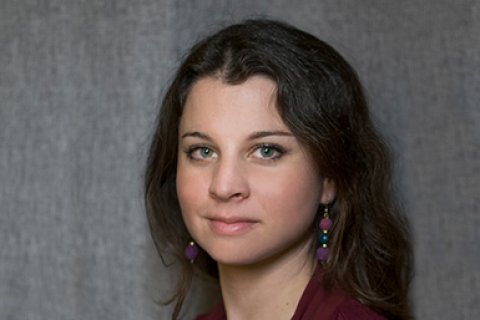Marie Curie Individual Fellowship winners start research in Utrecht

Recently, Claire McGinn and Giouli Korobili have been awarded a two-year Marie Skłodowska-Curie Individual Fellowship. This summer, they will start their research project at Utrecht University.

Claire McGinn
Claire McGinn will start a research project on the mechanical crank organ in August, working with Prof. Maaike Bleeker (Media and Performance Studies), Dr Floris Schuiling (Musicology), Marian van Dijk and Marieke Lefeber-Morsman (Museum Speelklok), and the Transmission in Motion research group. The project proposes a reframing of the crank organ and other mechanical instruments as proto-digital forms, offering a new perspective on the organ’s place in music history and exploring the emergence of digital music in terms of continuity.
This research will consider the social history of the organ as a window onto working-class, poor and itinerant urban musical life in nineteenth century Europe, alongside the technological history that sees the programming of these organs as a precursor to modern-day computer music. This work also seeks to contribute stories of women organ grinders in provincial areas to a history of women in music which has primarily focused on capital cities and middle- or upper-class musicians.

McGinn’s doctoral research in musicology at the University of York was supported by the White Rose College of Arts and Humanities. In 2018 she was a Fellow of arts-science organisation Invisible Dust’s Under Her Eye summit on women and climate change. She has also worked as a freelance musician, in arts management, and in victim support.

Giouli Korobili
In July, Giouli Korobili will start a project entitled GEOANATOMY. The Body as a Model in Greco-Roman Conceptions of the Earth and the Environment, mentored by Prof. Teun Tieleman (Philosophy). This project examines the ancient Greek and Roman application of medical analogies in which the body (and its functions) serves as the model for explaining the physical environment, meteorological and geological phenomena.
Believing that all bodies are part of the cosmos in the sense that they are governed by the same causal principles, ancient scientists communicated their observations by using analogy. This project aims to determine the impact of ancient Greek and Roman medicine on the causal explanations of meteorological and geological phenomena offered by Aristotle (4th c. BCE), Lucretius (1st c. BCE) and Seneca (1st c. CE) by investigating the course of reasoning within which such explanations are embedded, what Korobili calls ‘the medical argument’. An analysis of ‘the medical argument’ will ultimately lead to a redefinition of our present historical knowledge about the beginnings of modern environmental conscience and consciousness.
Korobili holds a PhD in Classics from Humboldt University of Berlin. She has been a Research Fellow of the Berlin Cluster of Excellence TOPOI with a project on the Vegetative Soul in Aristotle and beyond; of the Berlin Research Training Group ‘Philosophy, Science and the sciences’ with a project on the Byzantine Aristotelian commentator Michael of Ephesus; and of the Berlin-Brandenburg Academy of Sciences and Humanities with a project on the Byzantine Aristotelian commentator Theodore Metochites.

